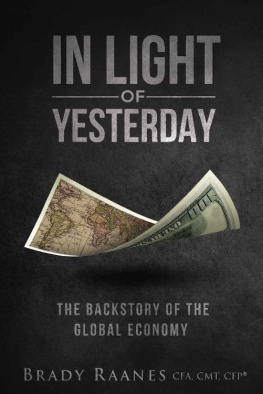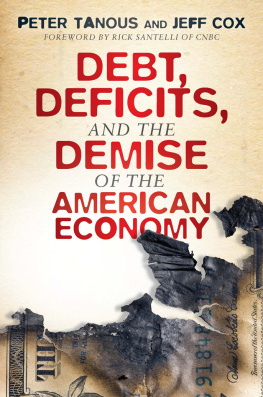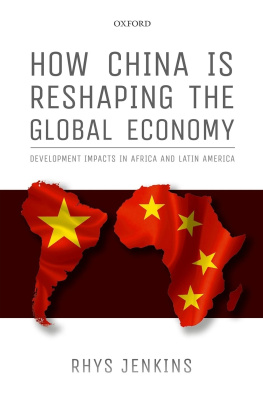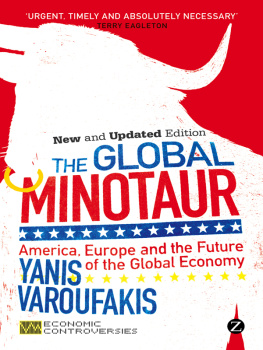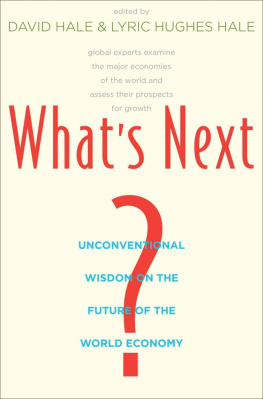In Light of Yesterday: The Backstory of the Global Economy
Brady Raanes, CFA, CFP,CMT
Copyright 2019 Brady Raanes
All rights reserved.
ISBN 13: 978-1-7332305-2-0
TABLE OF CONTENTS
This book would not be possible (or at least, not as good) without the loving support of several people. First, to my wife, Christen, thank you for allowing me time over the previous two and a half years to write and research on nights and weekends. Your patience and continued support have been inspirational. You helped make the book more approachable and entertaining, and I am very grateful for you. I couldnt ask for a better life partner!
To my mother, JoAnn, you have always been a fantastic sounding board, editor, idea generator, researcher, and cheerleader. I cant thank you enough for the countless hours youve spent reading my many rough drafts and talking through the stories to make this book possible. Also, thanks for raising me.
To my father and business partner, Duane, thank you for bringing me into the fascinating and challenging world of investments. Throughout the years, youve challenged me to improve myself, and allowed me to pursue my passions. Weve had an amazing working relationship for nearly twenty years, and Im so appreciative of your insight, honesty, and guidance through the years.
To my boys, Manny and Beni, thanks for patiently cheering me on while simultaneously forgiving me for spending my Saturday mornings hunched over the computer. I hope my dedication to research and self-improvement will be motivational to you both later in life. Whatever you choose to do, try to do it well. Find something you are passionate about, and separate yourself from others with your dedication and hard work.
A special thanks to my coworkers Duane Raanes, Kent Oliver, Jim Grenn, and Kelsey Addison for all your feedback on titles and covers, and for all your hard work with the sister podcast for this book, Domino. You guys are truly fun to work with, and I greatly appreciate your friendship and loving support. Also, Jim wants it to be known that he helped choose the final title. Personally, I liked Deja Poo: Weve Seen This Crap Before, but whatever.
To my friend Bill Schoell, thank you so much for reading my rough drafts, providing insights, and cheering me on along the way. Your cheap wine is always appreciated. Im truly humbled to consider you a friend.
To my clients, your trust and confidence have persisted throughout market cycles. You are truly the motivation for my efforts and the reason I strive to better understand the economy and the world around us.
To Raymond James Financial Services, thank you for letting financial advisors pursue their passion. Ive worked for other firms, and I can truly say that Raymond James takes the cake as the friendliest firm on the street. Many investment firms would prohibit advisors from writing books, producing podcasts, or making videos. Thank you for the flexibility and freedom you provide!
To my editor, Harry David, thank you for the feedback and the idea to reorganize the book. Your edits were timely, accurate, and incredibly helpful. I look forward to working with you again. Also, a special shout out to Nick Ortego with Ortego Creative thanks for all the work on the audiobook!
To my in-laws, Reggie and Denise Palmer, you had nothing to do with the book, but youre great people. Plus, you let me marry your daughter and I greatly appreciate that!
To my other friends, who also had nothing to do with the book, Ill list your names here as a test to see if you actually read this book. If you see your name, shoot me a text (in no particular order): Josh and Lauren Etheridge, Justin and Jenny Green, Brent and Mary Barham, Josh and Kara Barham, Brad and Jenny Boudreaux, Jason and Melanie Lindsey, Seth and Shasta Miles, Tommy and Alicia Teepell, Chad and Carmen Davis, Kent and Candace Oliver, Rick and Vanessa Raanes, KK and Malorie Aldridge, Warren and Jessi Flynt, Virgil and Mary Palmer, Josh and Courtney Speed, Steven and Raquel Wood, Paul and Lindsey Mickle, Will and Lee Herrin, Whitney and Paxton Dickson, Julie Anna and Jason Perry, Erin and Larry Pacific, Steve and Alecia Wood, Holly and Bobby Shirley, Jake Ford, Chris and Amy Martin, Quincy DeJarnett, Ben and Alisa Berteau, Jon and Sara Schock, Forrest and Marie Hartel, Ashley and Brittany Read, and Sharron and Terry Bellew.
Most importantly, to the reader, thank you for choosing to go on this journey with me. Its my hope that you walk away from this book with a better understanding of the economy, some fun stories to share at cocktail parties, and a little insight into what the future may hold.
Edward Lorenz was out of coffee. He entered the final numbers into his computer and pushed the button to begin the simulation before leaving his office to get a refill.
Lorenzs computer-simulated weather-pattern project had taken a substantial portion of his time since he secured his position as a professor at MIT. About an hour passed before Lorenz returned to examine the results from the programs two-month weather simulation. Computers ran slowly in 1961. Lorenz was stunned at the outputs; the results differed dramatically from his previous readings. He had run a short-term weather simulation earlier, but he had wanted to repeat the exercise to examine a longer time. He immediately suspected computer trouble.
Before calling for service I decided to see just where the mistake had occurred, Lorenz recalled. Lorenz had taken a seemingly small shortcut when entering the most recent data. The computer stored numbers to an accuracy of six decimal places, but the printout of results from the first simulation rounded the numbers to only three decimal places. When typing in the new weather conditions, Lorenz had entered the rounded-off numbers. For example, Lorenz entered 0.506 rather than 0.506127. Lorenz had served as a meteorologist for the US Army during World War II. He didnt have a formal degree in meteorology, but he was well versed in mathematics, having earned degrees at both Dartmouth and Harvard. Lorenz believed he could apply much of the mathematics he already knew to meteorology to get a more accurate forecast. This time, however, his numbers seemed outrageous.
I found that the new values at first repeated the old ones, but soon afterward differed by one and then several units in the last decimal place, and then began to differ in the next to the last place and then in the place before that. In fact, the differences more or less steadily doubled in size every four days or so, until all resemblance with the original output disappeared somewhere in the second month.
The output led Lorenz to a powerful conclusion: incredibly small changes can lead to exponentially large consequences when dealing with complex systems. Lorenz found it virtually impossible to predict a long-term meteorological outcome with much accuracy because of the weather systems complexity. This observation serves as a basis for what we now refer to as chaos theory, a field of study dealing with the effect of small changes in complex systems. The term chaos theory does not imply chaotic outcomes in the sense of mass hysteria. It merely implies that outcomes move from a linear, deterministic relationship into the realm of unpredictable outcomes. Lorenzs insights apply not just to meteorology, but to virtually every field dealing with complex systems. The term complex system is broad and speaks specifically to a field of research that studies systems with feedback loops, adaptive learning, and nonlinear relationships. The global economy is a prime example.
In 1972, Lorenz presented his research at the American Association for the Advancement of Science with the title Does the Flap of a Butterflys Wings in Brazil Set Off a Tornado in Texas? The imagery was a hit, and Lorenzs theory became known as the butterfly effect.
Next page
